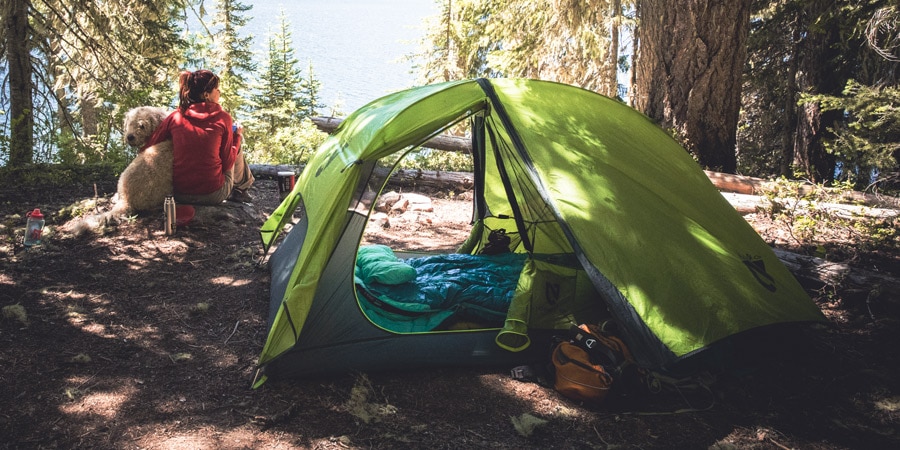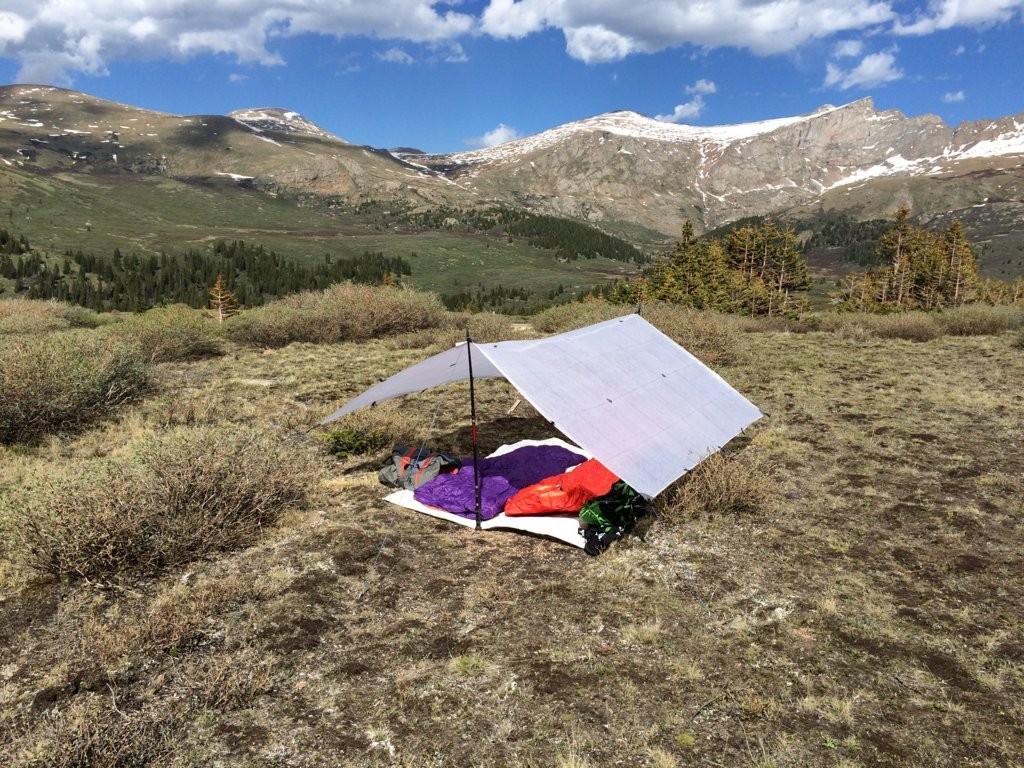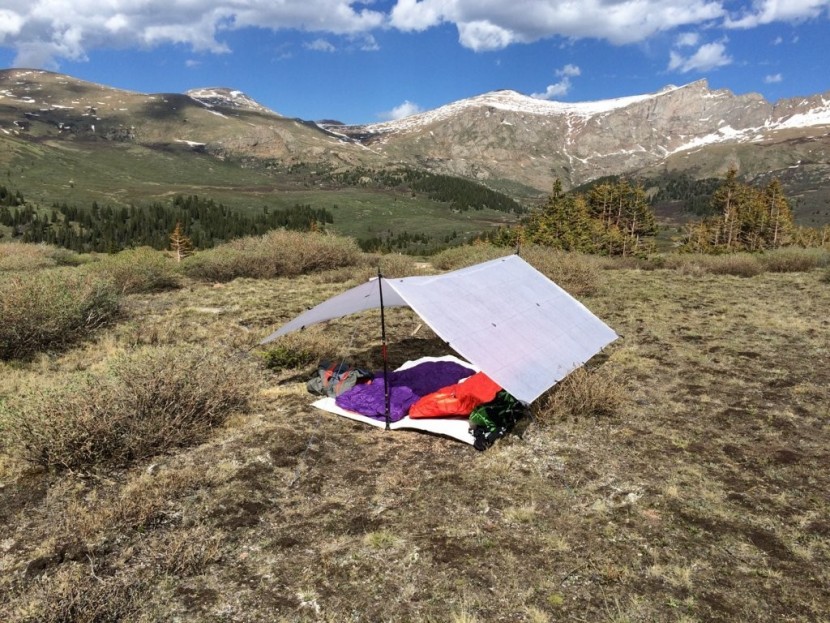To choose an ultralight tent, consider weight, durability, weather resistance, and size. Look for reputable brands with positive reviews and prioritize your specific needs for backpacking or camping.
Consider the materials, construction, and features such as ventilation and vestibules. Additionally, pay attention to the floor space, headroom, and ease of setup. Ultimately, choose a tent that balances weight, durability, and functionality to suit your outdoor adventures. When selecting an ultralight tent, it’s essential to prioritize weight, durability, weather resistance, and size.
Carefully consider reputable brands, materials, construction, and features to meet your specific needs. Evaluating floor space, headroom, and setup ease is also crucial. Balancing weight, durability, and functionality is key for your outdoor adventures.

Credit: www.rei.com
Table of Contents
Understanding Ultralight Tents
Choosing an ultralight tent involves considering factors such as weight, durability, and weather resistance. Look for high-quality materials and a reliable brand with positive customer reviews. Additionally, prioritize features like a sturdy frame and proper ventilation for a comfortable outdoor experience.
When it comes to backpacking, carrying a heavy tent can be a significant burden. Ultralight tents have become increasingly popular among backpackers due to their lightweight and compact design. These tents are designed to be as lightweight as possible while still providing adequate protection from the elements. Understanding what makes an ultralight tent can help you choose the right one for your needs.Benefits Of Ultralight Tents
Ultralight tents have numerous benefits for backpackers. The most obvious benefit is their lightweight design, which makes them easier to carry on long hikes. Additionally, these tents are often more compact than traditional tents, allowing them to fit into smaller spaces. Ultralight tents are also typically easier to set up and take down, making them ideal for those who want to spend more time exploring and less time setting up camp.Considerations For Ultralight Tents
When choosing an ultralight tent, there are several considerations to keep in mind. First and foremost, you will need to consider the size of the tent. Ultralight tents are typically designed for one to two people, so if you are traveling with a larger group, you may need to consider alternative options. Additionally, you will need to consider the material of the tent. Ultralight tents are often made from lightweight materials such as silnylon or cuben fiber, which can be more fragile than traditional tent materials. You will also need to consider the weather conditions you will be facing and choose a tent with an appropriate level of protection. In conclusion, understanding ultralight tents is crucial when choosing the right one for your backpacking needs. The benefits of ultralight tents, such as their lightweight design and compact size, make them an attractive option for backpackers. However, it is important to consider the size, material, and weather conditions when choosing an ultralight tent to ensure that it will provide adequate protection and meet your needs on the trail.
Credit: www.outdoorgearlab.com
Factors To Consider
When choosing an ultralight tent, there are several factors to consider to ensure you select the right one for your needs. From weight and packability to weather resistance and durability, each factor plays a crucial role in the overall performance of the tent. By carefully evaluating these aspects, you can make an informed decision that aligns with your outdoor adventures.
Weight And Packability
The weight and packability of an ultralight tent are paramount for backpackers and hikers. Look for tents that are lightweight and compact, making them easy to carry and store. Consider the tent’s packed size to ensure it fits comfortably in your backpack without adding unnecessary bulk.
Weather Resistance
When it comes to weather resistance, prioritize tents with strong waterproof capabilities and durable materials. Ensure that the tent offers reliable protection against rain, wind, and harsh weather conditions. Look for features such as a high hydrostatic head rating and sealed seams to safeguard against water intrusion.
Durability And Materials
The durability and materials of the tent are crucial for long-term use. Choose tents constructed from high-quality, ripstop fabrics that offer superior strength and tear resistance. Additionally, consider the tent’s frame and stakes to ensure they can withstand rugged terrain and frequent use.
Choosing The Right Size
Choosing the right size for an ultralight tent is crucial to ensure a comfortable camping experience. It’s essential to consider the capacity, interior features, and overall space when selecting the perfect tent for your outdoor adventures.
Capacity And Space
When choosing an ultralight tent, consider the capacity in terms of the number of people it can accommodate. Ensure the tent provides enough space for all occupants to sleep comfortably. Additionally, consider the vestibule area for storing gear and the overall floor space for movement.
Interior Features
Look for interior features that enhance the functionality of the tent, such as adequate storage pockets, gear lofts, and hanging loops for lamps or lanterns. These features can help optimize the space within the tent and keep essential items organized and easily accessible.
Important Features To Look For
When choosing an ultralight tent, key features to consider include weight, durability, weather resistance, and ease of setup. Look for a tent with high-quality materials, a reliable waterproof rating, and a simple, efficient design to ensure a comfortable and hassle-free camping experience.
When it comes to choosing an ultralight tent, there are a few important features to consider. These features can make the difference between a comfortable night’s sleep and a miserable one. In this article, we’ll discuss three key features to look for: ventilation and condensation control, ease of setup, and additional storage.Ventilation And Condensation Control
One of the most important features to look for in an ultralight tent is ventilation and condensation control. When camping in humid or wet conditions, condensation can build up inside the tent, making it feel damp and uncomfortable. Look for tents with plenty of ventilation options, such as mesh windows or vents, to help keep the air flowing and prevent condensation buildup.Ease Of Setup
Another important feature to consider is ease of setup. When you’re on a backpacking trip, you want a tent that’s quick and easy to set up so you can spend more time enjoying your surroundings and less time fiddling with your gear. Look for tents with simple, intuitive designs that can be set up quickly and easily, even in the dark or in bad weather.Additional Storage
Finally, it’s important to consider the amount of storage space your tent offers. When you’re backpacking, you’ll likely have a lot of gear with you, so you’ll want a tent that has plenty of storage options. Look for tents with vestibules or gear lofts that can help keep your gear organized and out of the way. Overall, when choosing an ultralight tent, it’s important to consider these key features. With the right tent, you can enjoy a comfortable, hassle-free camping experience no matter where your adventures take you.Comparing Tent Designs
When choosing an ultralight tent, it’s essential to consider the different tent designs available. Each design has its own set of advantages and drawbacks, so it’s important to understand the distinctions before making a decision. Let’s compare the various tent designs to help you choose the best option for your needs.
Freestanding Tents Vs. Non-freestanding Tents
Freestanding Tents: These tents are self-supporting, utilizing a system of poles to create a structure that can stand on its own without the need for stakes. They are generally easier to set up and can be moved around after pitching.
Non-Freestanding Tents: These tents require stakes and guylines to be pitched, as they rely on tension from the stakes to create their structure. While they may take more time to set up and require a bit more space, they are often lighter than freestanding tents.
Single-wall Vs. Double-wall Tents
Single-Wall Tents: These tents combine the tent body and rainfly into a single layer, providing a simpler and lighter design. However, they may be more prone to condensation, and ventilation can be a concern in certain weather conditions.
Double-Wall Tents: With a separate tent body and rainfly, double-wall tents offer better ventilation and reduced condensation. While they may be slightly heavier, the added protection and comfort are beneficial, especially in variable weather conditions.
Budget Considerations
When choosing an ultralight tent, budget considerations play a crucial role in the decision-making process. It’s important to find a tent that strikes a balance between cost and quality while offering value for money.
Balancing Cost And Quality
Finding a tent that balances cost and quality is essential for a successful camping experience.
Value For Money
Ensuring you get value for your money means evaluating the features and durability of the tent.
User Reviews And Recommendations
When choosing an ultralight tent, user reviews and recommendations can provide valuable insights. Here’s how you can leverage them:
Researching User Experiences
Look for real user feedback on websites, forums, and social media to understand the performance and durability of the tent.
Seeking Expert Advice
Consult with experienced hikers or outdoor enthusiasts for personalized recommendations based on your specific needs.
Final Decision And Purchase
To make the final decision and purchase an ultralight tent, consider factors like weight, durability, weather resistance, and ease of setup. Evaluate your needs, read reviews, and compare features before selecting the best tent for your outdoor adventures.
Making An Informed Choice
Choosing the right ultralight tent requires considering your specific needs and preferences. Research different brands, materials, and features before making a decision. Compare weight, durability, weather resistance, and price to find the best option for you.Where To Buy
Purchase your ultralight tent from reputable outdoor retailers or directly from manufacturers. Check online reviews and ratings to ensure the quality and reliability of the product. Consider warranty options and return policies when selecting a retailer. After thorough research and comparison, make your final decision based on your priorities. Select the ultralight tent that best meets your requirements and budget. Complete your purchase through a secure and trusted platform for a smooth transaction.
Credit: www.outdoorgearlab.com
Frequently Asked Questions
What Is A Good Weight For An Ultralight Tent?
A good weight for an ultralight tent is typically around 2 to 4 pounds. Choosing a lightweight tent can make backpacking and camping easier and more enjoyable.
What Is The Best Material For An Ultralight Tent?
The best material for an ultralight tent is silicone-coated nylon or Dyneema composite fabric. These materials are lightweight, durable, and water-resistant, making them ideal for backpacking and camping.
What Are The Different Types Of Ultralight Tents?
Ultralight tents come in various types, including single-wall, double-wall, and trekking pole tents. Single-wall tents are lightweight and have integrated waterproofing. Double-wall tents have a separate rainfly and inner tent for better ventilation. Trekking pole tents use hiking poles for support, reducing weight.
How Light Should My Tent Be?
The weight of your tent depends on your personal preferences and the type of camping you’re planning. However, a good rule of thumb is to aim for a weight of 2-3 pounds per person. Lighter tents are usually more expensive, but they are easier to carry and set up.
Conclusion
In choosing an ultralight tent, prioritize weight, durability, and weather resistance. Consider your specific needs and budget to find the perfect balance. Remember to research and read reviews before making a decision. Your outdoor adventures will be enhanced with the right ultralight tent by your side.
